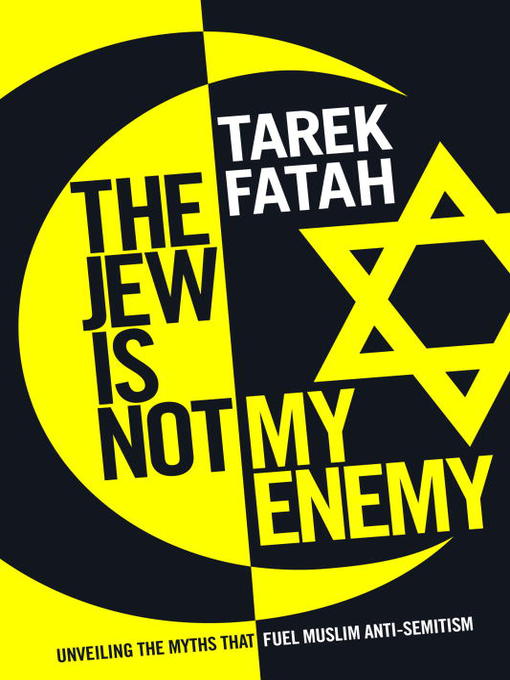
The Jew is Not My Enemy
Unveiling the Myths that Fuel Muslim Anti-Semitism
کتاب های مرتبط
- اطلاعات
- نقد و بررسی
- دیدگاه کاربران
نقد و بررسی

January 10, 2011
Fatah (Chasing a Mirage) describes the tensions between followers of Islam and of Judaism, attributing the lack of understanding and compassion between these groups to the scriptures they study and propaganda spread by radicals. Fatah explains that from a young age Muslim children are taught to pray for the downfall of other religions, especially Judaism, and though "most of us ignore it as nothing more than the rhetoric of the screaming cleric," lingering suspicion about Jews remains "for our entire lives, even if we never meet one." He also examines beliefs that many Pakistani Muslim's voice, such as blaming Israel for the Bird Flu, and the fact that in order to be considered an intellectual or a faithful Muslim, one is expected to wholeheartedly embrace these rumors as fact; to speak out against propaganda is slanderous and those who doubt the teachings of religious leaders are dehumanized. Pakistani textbooks and TV shows support these rumors as facts, widely disseminating anti-Semitism daily. In spite of all this, Fatah offers examples of Muslims supporting, befriending, or even saving Jewish people, demonstrating the importance of tolerance and understanding in a world full of opposing beliefs and ideologies.

Starred review from October 15, 2010
Fatah, a Pakistani-born Canadian journalist and liberal Muslim leader, has written a valuable and courageous book, condemning the widespread hostility to Jews expressed by some Muslim clerics and political leaders in seeking not only to undermine the legitimacy of Israel but to denigrate Jews generally. Fatah analyzes the Koran and other Islamic texts to show that such positions are not inherent to Islam but are historical distortions. He admits that the emergence of Israel fueled anti-Jewish rhetoric but explains that its virulence reflects the weakness of contemporary Muslim cultures and the sense of Muslim Arab racial superiority that has obstructed Muslim countries from transforming themselves to succeed in the modern world. He provides examples of religious, literary, and historic conditions that have generated hostility to Jews and balances these with numerous examples of an open and collaborative Islamic perspective. He calls on Muslim leadership to reject hateful views, abandon its addiction to victimhood, and work to build an enlightened society to end hatred of Jews and other non-Muslims. VERDICT An important book for the general reader, illuminating a wide range of Islamic texts in arguing for a tolerant and progressive version of Islam.--Elizabeth R. Hayford, emerita, Associated Colls. of the Midwest, Evanston, IL
Copyright 2010 Library Journal, LLC Used with permission.

November 15, 2010
Most stringent Muslim critiques of Islam are written by scholars for scholars. Journalist Fatah knows that scholarship but writes for general readersmoreover, on an aspect of Islam rarely publicly discussed in the West. Genocidal hatred of the Jews is endemic among Muslims. But, Fatah argues, it is fueled by a biography of Muhammad composed long after his death, and is a relatively recent development. After limning the 2008 Chabad House massacre in Mumbai and noting Christian anti-Semitisms influence on Muslims, Fatah turns to the early-twentieth-century mufti of Palestines alliance with Hitler; Israels ill-advised aid to Hamas to check Arafats PLO; and anti-Semitism in the hadith, or sayings of Muhammad, and, finally, in two spellbinding chapters looks at the prophet-directed massacre of a whole Jewish tribe that had stayed out of the 627 Battle of the Trenchaccording to the biography. That incident probably never happened and, with the vicious hadith, thoroughly contradicts the true text of the Quran. This strikes a strong blow for Muslim-Jewish rapprochement, reconciliation, and loving fellowship.(Reprinted with permission of Booklist, copyright 2010, American Library Association.)

























دیدگاه کاربران